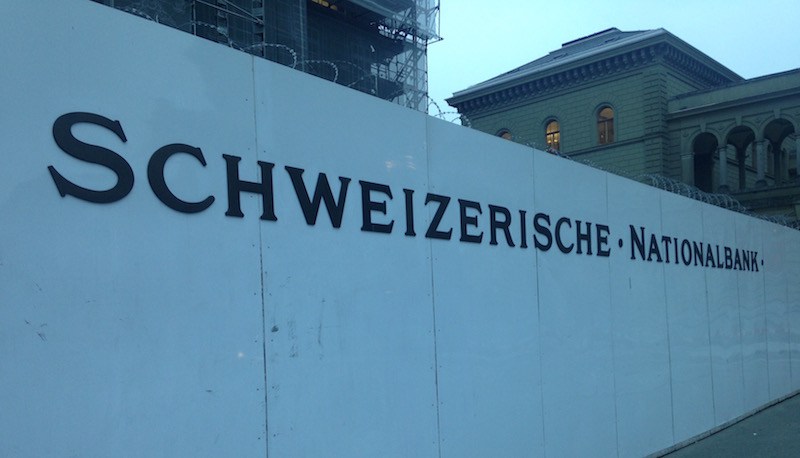 The Swiss government urged rejection of a popular initiative that would transform the monetary system and end fractional-reserve banking, according to its dispatch to Parliament. The measure seeks to put the central bank solely in charge of money supply and forbid commercial banks from granting loans that aren’t fully backed by deposits, effectively ending the way banking has been conducted for centuries. It’s a system known as Vollgeld — or “whole money” in German — and proponents say it would prevent financial market bubbles.
The Swiss government urged rejection of a popular initiative that would transform the monetary system and end fractional-reserve banking, according to its dispatch to Parliament. The measure seeks to put the central bank solely in charge of money supply and forbid commercial banks from granting loans that aren’t fully backed by deposits, effectively ending the way banking has been conducted for centuries. It’s a system known as Vollgeld — or “whole money” in German — and proponents say it would prevent financial market bubbles.
Yet the Swiss government argued voters should reject the measure because “such a profound transformation of the monetary system would carry substantial risks.” “If the initiative were to be accepted, Switzerland would become a guinea pig for untested reforms,” the Bern-based government said in a statement on Wednesday, accompanying its dispatch to parliament. “Acceptance would complicate the Swiss National Bank’s monetary policy and lead to considerable risks for the Swiss economy.”
Advocates of Vollgeld say their plan would prevent the credit boom blamed for the 2008 global financial crisis, and possibly the next. The central bank would be able to ensure the real economy has the liquidity it needs, and no more, proponents say.
In Switzerland, they’ve collected the requisite 100,000 signatures from among citizens to trigger a national vote. The matter will next be taken up by parliament. A date for the vote hasn’t yet been set, and could well be more than a year away. Plebiscites are a key feature of the country’s system of direct democracy, with topics ranging from immigration to military conscription and a minimum wage.
The SNB already signaled its opposition to the Vollgeld measure in April, with President Thomas Jordan arguing that better capitalized banks would do more for financial stability than Vollgeld. It would also undermine the institution’s independence, he said.
The government took a similar stance, citing risks to the SNB’s credibility. The commercial banking system too would be affected, it said. “Banks would have to resort to other, generally more expensive sources of financing” and payment transaction costs for bank clients would probably rise, it said. “Particularly smaller banks, which generate a large proportion of their revenue in the interest margin business, would be affected by the cost increase.”
Bloomberg
More on this:
Federal council rejection of the initiative (in French)
Federal council rejection of the initiative (in German)
Vollgeld initiative website (in English)
Full story here Are you the author? Previous post See more for Next post
Tags: newslettersent,Vollgeld




































